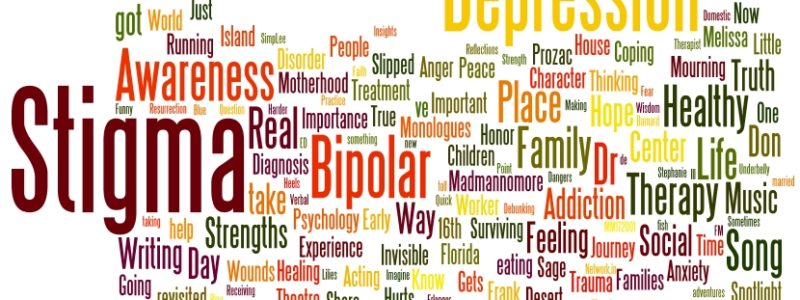The Mental Health Stigma

Stigma and discrimination are things that people have had to deal with throughout time, in one way or another. In recent times, the stigma attached to mental health has been focused on, and it is largely improving, but there is still a way to go. Even though mental health problems are common, there is still a stigma attached to both having a mental health problem and people talking about how they feel.
I find it so sad that people still feel uncomfortable in talking about their mental health because problems relating to mental health are common and affect thousands of people in the UK. The Mental Health Foundation estimates that one in six people have experienced a mental health problem in the past week, and that 10% of children, aged five to sixteen years old, have a clinically diagnosable mental health condition. They also explain that depression is the main mental health problem in the world, followed by anxiety, schizophrenia and bipolar disorder.
In the UK in 2014, 19.7% of people in the UK, aged sixteen or over, showed symptoms of anxiety or depression – that’s nearly one fifth of the whole population – but there is still a stigma towards talking about how people feel. I have previously spoken about the ‘Every Mind Matters’ campaign by Public Health England and the National Health Service, which aims to help the population to manage and maintain their mental health. By going on the website and taking a quick quiz about their everyday lives, people can gain tips in how to improve their mental health, including how to improve their sleep, and how to manage stress levels. This sparked a huge campaign in 2019, with a lot of advertising, including television adverts, and I think it put a huge spotlight on mental health and how every member of the population can be included in talking about their own mental health, even if they did not realise they may need to.
One positive is that mental health awareness is improving, but certain mental health problems have common misconceptions, such as bipolar disorder, schizophrenia, and personality disorder. It has been found that stigmas attached to mental health conditions, and mental health in general, seriously affects the wellbeing of those who experience them, and it changes how people feel about themselves and the way others see them. Almost 90% of people with mental health problems say that stigma and discrimination have a negative effect on their lives. Therefore people who are already dealing with their mental health have to also deal with the extra worry of how they are perceived by society, which is largely due to stereotyped views such as mental ill health means a person is dangerous and may be violent. This is a common misconception, as a person experiencing mental ill health is more likely to harm themselves than they are other people. The stigma society carries towards mental health not only affects people who have a mental health problem, it also affects people who may need to get help for one.
Talking is largely viewed as being a way of dealing with situations in life, whether that is talking about problems people have, or opening up about how they are feeling. I think that the more people talk about mental health in general, the more people become used to it, and it can become easier to understand and to take action with their own mental health if required. Stigma has a huge effect on people who experience mental health problems, so I think it is vital that it is eradicated to allow for more and more people to get the help they need.
Sarah Keeping MBPsS MSc PgDip GDip BA (Hons) Cert HE
Follow Sarah on twitter at @keepingapproach
References
https://www.mentalhealth.org.uk/statistics/mental-health-statistics-depression
https://www.nhs.uk/oneyou/every-mind-matters/
https://www.nhs.uk/oneyou/about-one-you/
https://www.time-to-change.org.uk/biggerpicture
https://www.mentalhealth.org.uk/a-to-z/s/stigma-and-discrimination



